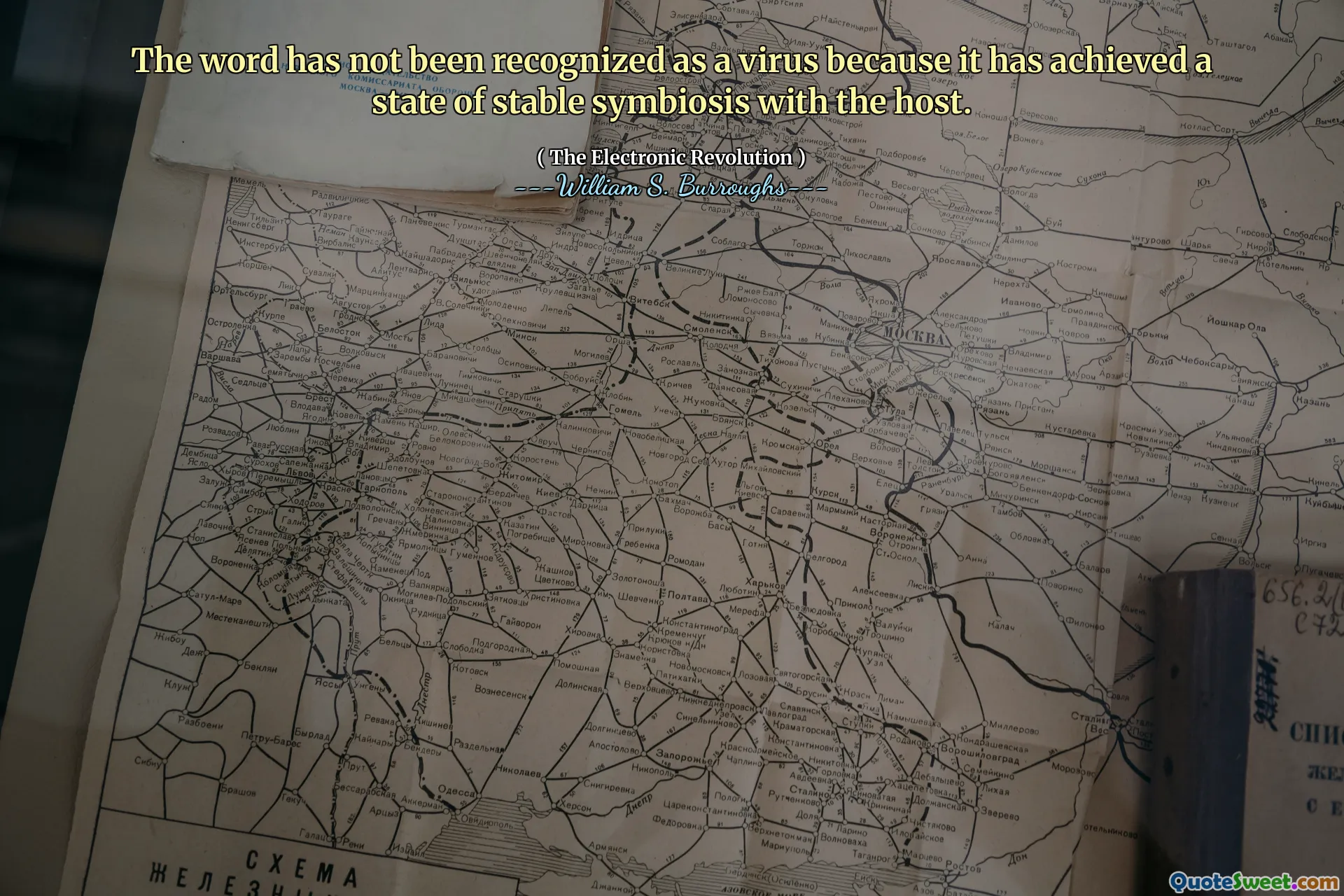
The word has not been recognized as a virus because it has achieved a state of stable symbiosis with the host.
In "The Electronic Revolution," William S. Burroughs discusses the relationship between technology and society, likening certain technologies to viruses that integrate seamlessly with their hosts. He suggests that these technologies have evolved to coexist without causing significant harm, reaching a balance that allows them to function alongside humans effectively. Instead of being outright threats, they become part of the fabric of daily life.
This perspective highlights how technology can infiltrate our lives, often unnoticed, as it adapts and evolves. Burroughs implies that this symbiosis can alter human behavior and societal norms, raising questions about dependency on technology. His observations encourage a deeper reflection on the implications of technological integration in our lives.


